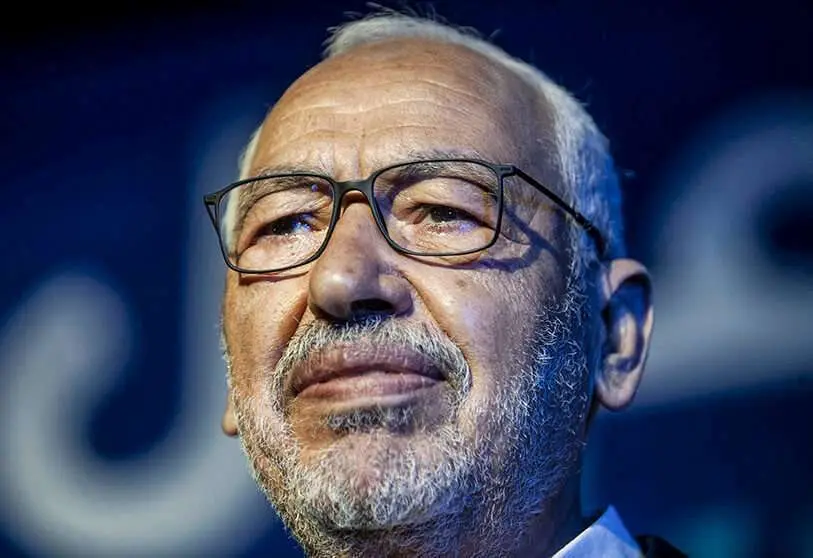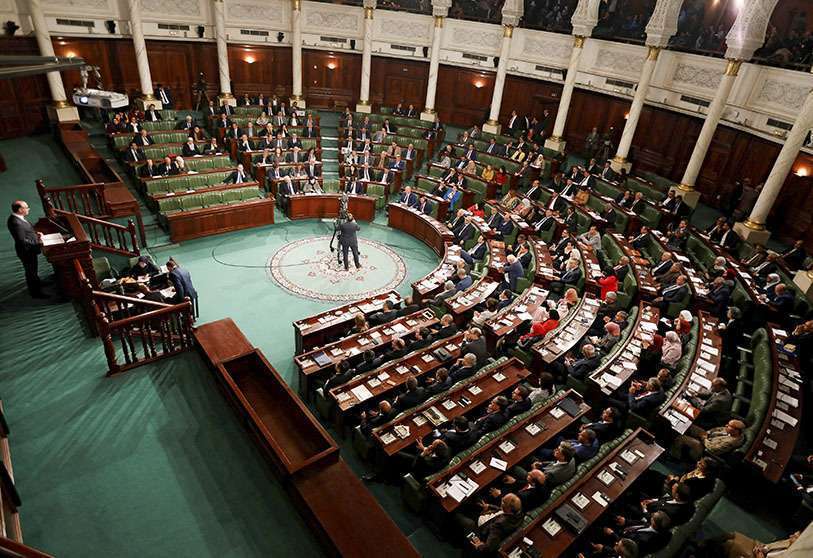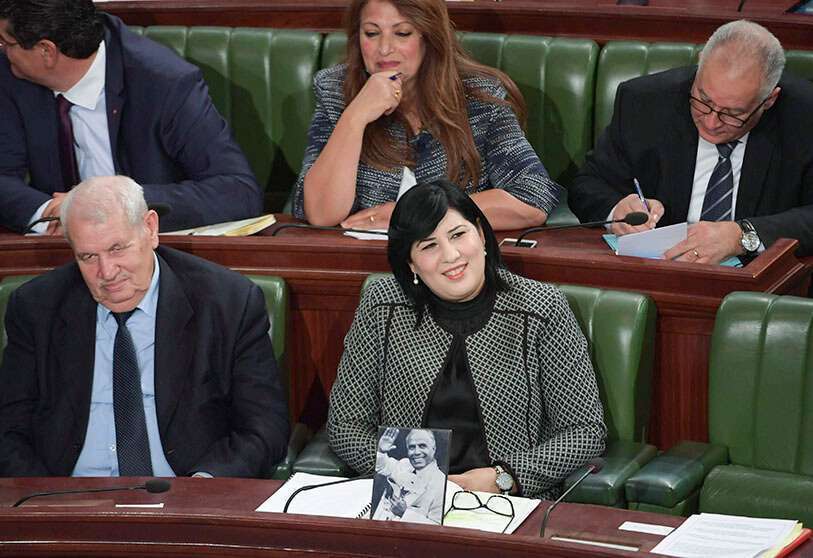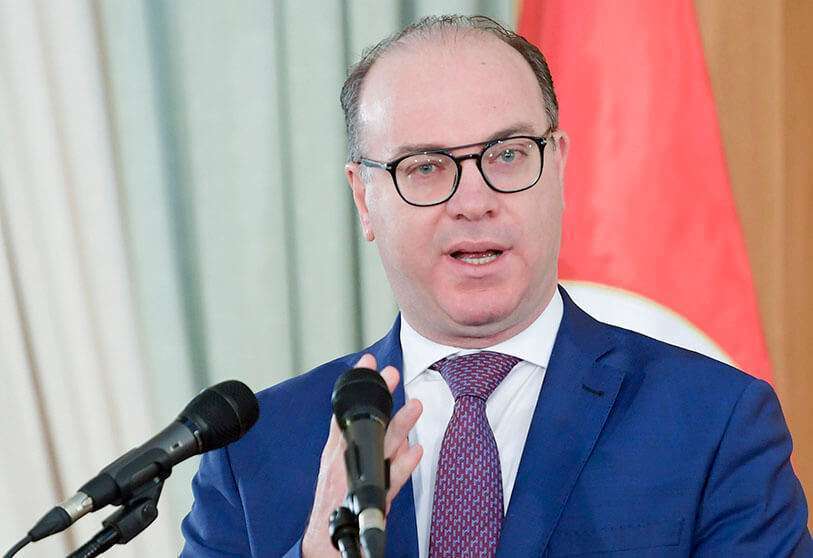Motion to withdraw confidence in President of Tunisian Parliament Rached Ghannouchi

Up to four Tunisian parliamentary groups, totalling 73 deputies, submitted a motion to withdraw confidence in the President of Parliament, Rached Ghannouchi, the leader of the Ennahda Islamist party, which is in the majority in the House.
"His mismanagement of the House has caused a tense atmosphere in the Chamber," Hassouna Nassfi, chairman of the Reform group, told the North African news agency TAP. Nassfi himself said that Ghannouchi is not acting as president of the parliament but as head of the conservative Islamist party.
The Free Desturian Party (PDL), led by the lawyer Abir Moussi and with a right-wing tendency linked to the past dictatorship of Zinedin el Abedin Ben Ali, has been one of the most active groups against Ennahda; although the rest of the formations see this formation as a redoubt of nostalgia for the past dictatorship and have wanted to mark certain differences. The promoters of the withdrawal of confidence in Rached Ghannouchi rejected the contribution of the 16 members of the PDL.

The main struggle of the PDL and part of the opposition is to throw Ennahda out of the political and institutional spectrum. Ennahda is singled out because of its ties to the Muslim Brotherhood, an entity considered terrorist by several Western countries and by others such as Saudi Arabia and Egypt, and which is attached to the Salafist tendency (which defends a rigid vision of Islam). Within this supposed alliance, Qatar would also enter, a nation closely linked to the Brotherhood and which was also denounced in 2017 by the Saudi kingdom, the Egyptian country, the United Arab Emirates (UAE) and Bahrain for supporting cross-border terrorism. An issue that led Riyadh, Cairo, Abu Dhabi and Manama to impose a diplomatic and economic bloc that isolated the Gulf monarchy, which sought other partners at the international level, such as Turkey and the Islamic Republic of Iran.
The Turkish country presided over by Recep Tayyip Erdogan and the regime of the Ayatollahs is also marked by a trail of episodes that threaten the security of the Middle East and the world. Ankara actively participates in the civil wars in Libya and Syria in order to position itself in the Mediterranean and gain weight in world geopolitics and obtain economic benefits from gas and oil prospecting, as several analysts point out. Meanwhile, Tehran was pointed out for encouraging incidents with ships in Gulf waters and attacks on oil and airport infrastructures in Saudi Arabian territory (a great representative of the Sunni version of Islam, as opposed to the Shiite one sponsored by Iran). Furthermore, its interference in the internal affairs of neighbouring states through the action of related Shiite groups has also been analysed. This is the case of Yemen, with the Hutí rebels; Syria, with the militias of Afghan origin of Liwa Fatemiyoun; Lebanon, with the guerrillas of Hezbolá; Iraq, with the Popular Mobilization Forces; or Palestine, with the militias of Hamas.
Through Ennahda and leaders like Ghannouchi, Tunisia could enter fully into a spiral of association with the Muslim Brotherhood, which would lead it to Qatar and the pole allied with nations like Turkey and Iran. This is the danger denounced by the Tunisian opposition, which is why they want to withdraw confidence in the president of the parliament and the conservative Islamist party.

The House must vote on the initiative within a maximum of three weeks and, if it obtains the necessary 109 votes, elect a new president. This is a complicated task due to the fragmentation of the Assembly, which is divided into around twenty parties and fifteen independents. Precisely, the last elections meant the division of the vote and the loss of support by Ennahda, who came to enjoy large majorities. As a result, the Islamist party has been facing an internal crisis that led to the departure of even the number two party in the Abdel Fattah Mourou party at the end of May. There were voices that spoke about the fragmentation of the party and a document about the formation's next convention to deal with internal affairs was leaked, but spokespersons quickly emerged to align themselves with the official position and with the leader Ghannouchi, as was the case of Nour Eddine Arbaoui, in charge of Ennahda's Political Relations, or Abdel Karim Harouni, president of the party's Advisory Council.
The motion against the Islamist leader comes amid a serious political crisis in the country, which was exacerbated Wednesday by the resignation of Prime Minister Elyes Fakhfakh on charges of corruption. Fakhfakh, an independent and partner in the government with Ennahda, was charged by the National Anti-Corruption Institute with an alleged "conflict of interest" for failing to declare that he owned shares in private companies that had contracted with the government.
Under the Constitution, the president now has one week to appoint a replacement, who must win the support of an absolute majority in parliament within a month and elect a new executive, as the current one remains in office. If he fails to do so, the Magna Carta provides that the deadline can be extended by a further 30 days before the elections, held last October, are due to be repeated.
The resignation came just hours after Ennahda set in motion the machinery to carry out a motion of censure against Fakhfakh, due to the tensions between the two parties, and announced that it had 105 of the 109 votes needed, thanks to the support of two major formations such as the populist Qalb Tounes and the Salafist alKarama.

Another factor deepening the Tunisian crisis is the case of the Tataouine region in southern Tunisia. There, a group of demonstrators closed the pumping valve of the El Kamour gas field, the most important in the country, according to reports on social networks.
These demonstrators had warned the government about this action and ended up carrying out the threats they made. "We did not want it to come to this, but the authorities have not listened to our calls and do not seem to want to extend a hand to find a real solution," said spokesman Tarek Haddad.
The Tataouine area is a very depressed area, and its inhabitants had asked for job improvements and the fulfilment of the government's promise on an agreement signed after the 2017 protests in which it committed to hire 4,500 unemployed young people in the state oil companies and to invest 27 million euros per year in the area.
In response to this movement, the Defence Ministry indicated that the army "will not allow anyone to threaten national security or production sites and that all attempts at aggression and looting will be prevented with the legal and judicial means available".








